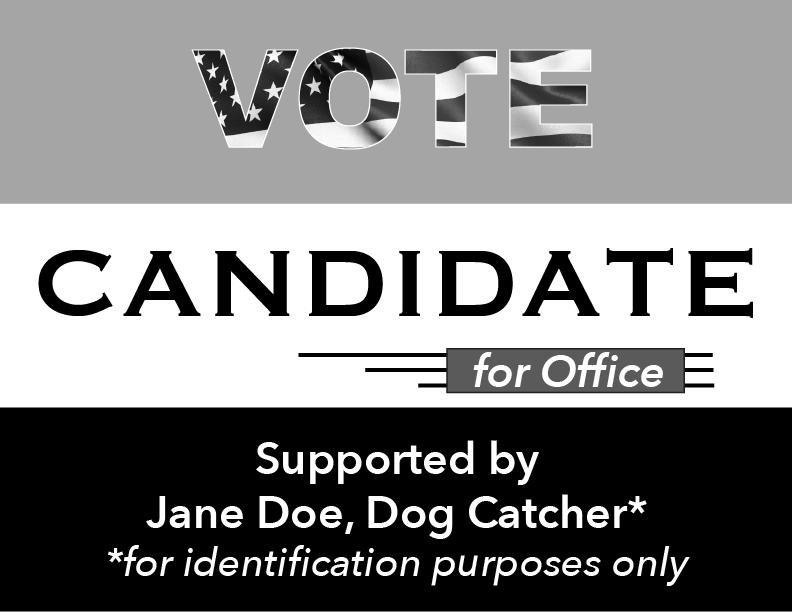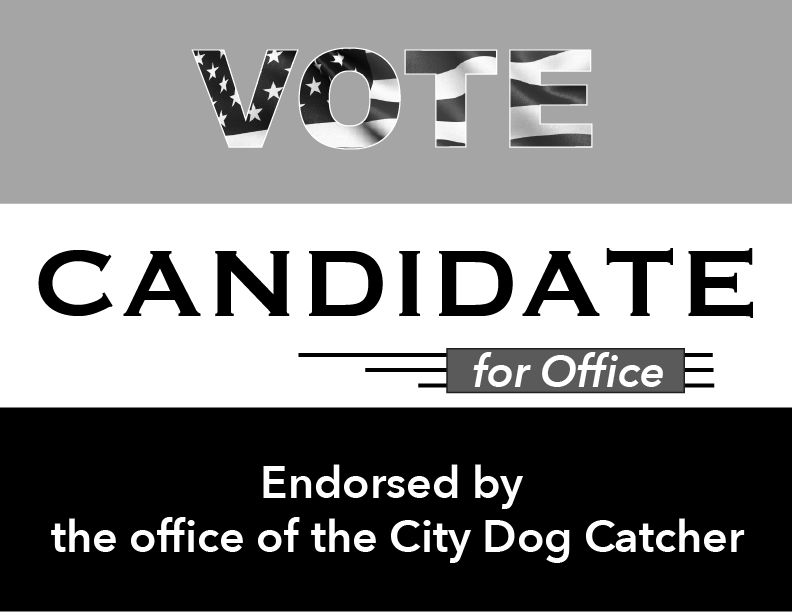It is common for employees and officers of the City & County of San Francisco to run for political office. Typically, that is okay!
However, government resources should never be used to promote one’s candidacy. So there are strict rules about what is not allowed in the workplace.
Political Activities Dos & Don’ts
Many people in government are politically active. On their own time, that is usually okay. But political activity is not allowed at work.
This is to prevent the use of public resources for campaigning. Otherwise, government officials could unethically use their position and power to sway elections. That is wrong and inappropriate.
No government resources – including City equipment and your work hours – can ever be used for any political activity.
When Can I Be Politically Active?
Things you can do
You can make political phone calls on your personal phone out of the office during break, lunch, or after work.
Things you can’t do
Never use work phones, computers, printers, or other equipment – even on your breaks or after work hours.
Can I campaign for myself or ballot measures with workplace connections?
Things you can do
You can contact a list that includes many people, some of whom may be city employees. However, make an effort to remove city employees from the list.
Things you can’t do
1) Never campaign during work hours
2) Do not ask someone you manage for support or donations
3) Never use workplace resources, like email accounts, computers, copiers, phones, pens, or other resources
Can I endorse candidates or ballot measures?
Things you can do
You may endorse candidates or ballot measures as an individual.
Things you can’t do
You may not present your endorsements with government “trappings” (like letterhead)
Can I use my job title to support candidates?
Things you can do
Your name can appear with your job title or description if it is for “identification purposes only” and it is clear that your endorsement is personal.
Example:

Things you can’t do
Your support may not be grounded in your official role.
For example: “They are endorsed by the office of the City Dog Catcher!”
Example:

While working, can I answer a member of the public’s question about a ballot measure?
Things you can do
You can always share impartial information about a measure before the voters. This includes things like a measures cost, policy language, and background for how it was developed.
Things you can’t do
You can never, on city time or through your position, advocate a stance on an issue or provide impartial information. For example, you may never urge someone to vote a certain way.
There are other rules to follow too. These are primarily about the use of city-funded mailers, conflicts of interest, donations from contractors, and more. You can read more in detail here.
Use & Misuse of Position
Your role with the City & County of San Francisco is for the public good. Therefore, there are some guidelines about how you can use your role.
These rules always apply – you can never misuse your position. But if you are also running for office, it is doubly important that you don’t abuse your position.
Here’s the short version: don’t use your title or office materials for anything than your role.
No one can use their position to:
• Help hire a family member or romantic partner
• Seek services, like a reservation at a restaurant, for yourself or a family member
• Pursue contributions to an organization you or a family member are a part of
• Endorsing political campaigns (unless for “identification purposes only”)
Learn more about nepotism at the Department of Human Resources’ website.
Prohibited Activity
First, appointed board members and commissioners (not including Community Advisory Committees – and like bodies – and elected officials) may not run for public office while serving (read the law on this website).
All officers and employees have some restrictions on their activities. These are defined in their departments’ “Statement of Incompatible Activities,” or SIA. Each one is designed only to restrict those most incompatible with that department’s work.
Exceptions can be made. An officer or employee would inquire whether the prohibited activity could be okay with their particular role. An “Advance Written Determination” could be drafted if this is agreed to. This would then allow that officer or employee to engage in that activity.
Political Contributions
Local political contributions are more complicated if you work in or with the city. This is to reduce the chance that gifts don’t influence decision-making. It also helps prevent inappropriate pressure in the workplace.
If you fall into one of these groups, then additional rules apply to you:
• If you’re a City officer or employee seeking contributions
• If you are seeking a permit
• If you have or are seeking a contract
• If you are seeking a Large Project Authorization
If you fall into these groups, you must generally be very careful about when (or even if!) donations can be made or even requested. If you think these rules might apply to you, read more in detail here!
Public Financing
San Francisco’s public financing system is designed to strengthen the accountability of candidates to the voters who elect them. Candidates for Supervisor and Mayor who meet the criteria can qualify to receive limited amounts of public funds for their campaigns and can spend less time fundraising and more time discussing issues important to their constituents.
By increasing the importance of relatively small, individual contributions in election campaigns, public financing systems help encourage new and diverse voices among candidates as well as those whom they are elected to represent. This program uses public funds for elections, but only through strict processes.
To learn more about public financing, visit our website.
Behested Payments
First, what are “Behested Payments?”
A behested payment is one made (for example, to a non-profit) because of a request by a public official or employee to someone to make that payment. A “payment” can be cash, goods, or services.
Because these requests can raise ethical flags about fairness in governmental decision-making, the practice is regulated by both state and San Francisco laws.
Learn more about the limits on requesting Behested Payments on our website.
If you are running for office, people might want to find ways to express their support or garner favor through several ways, including donations. The rules about behested payments still apply to anyone in terms of their current City role.
What can I do if I suspect fraud, waste, or abuse in City government?
What can I do if I suspect fraud, waste, or abuse in City government?
As public servants, it is important that we follow the rules for good governance and hold each other accountable. We all have a responsibility to not only follow ethics guidelines but also to report bad behavior.
This is why there is a process for city employees and contractors to report issues they know about – sometimes, this is referred to as “whistleblowing.” You can file a whistleblower complaint online on the Controller’s Office webpage.
Also, those who report suspected misbehavior are protected from retaliation. Whistleblowing, in this context, is usually about unethical behavior. Issues include:
• Misuse of public funds
• Improper gift-giving & receiving
• Violating local, state, or federal laws
• Wasteful and/or inefficient government practices
How are whistleblowers protected?
How are whistleblowers protected?
People need to trust that if they report improper government activity, they won’t be a target for retaliation.
“Retaliation” could include being fired, demoted, suspended, or other similar actions against an employee.
If retaliation has occurred, the offender can face fines of $5,000-$10,000 as well as disciplinary actions. In addition, the retaliatory action could be reversed.